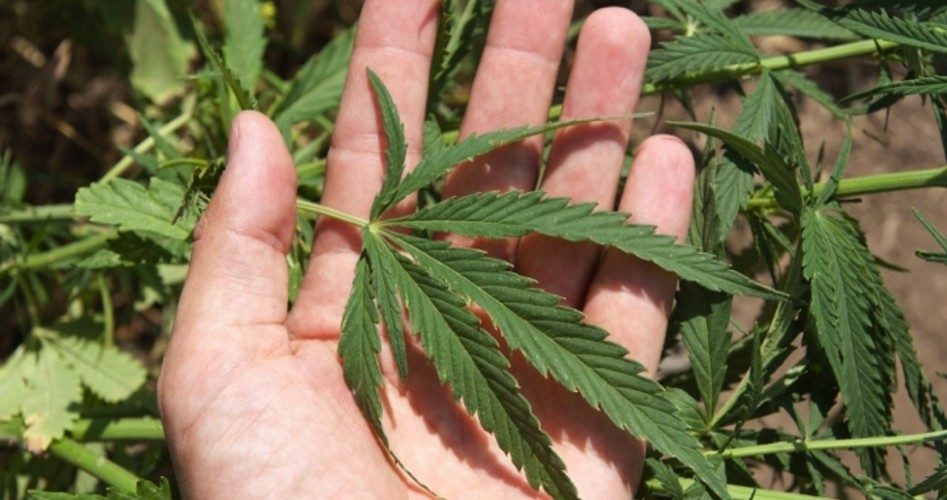
A Texas grand jury last week might have set a precedent when it decided not to indict a marijuana grower who shot and killed a police officer during an early-morning raid on the man’s home.
“I don’t know of any other case where someone shot and killed a police officer in the course of a drug raid has been no-billed by a grand jury,” Dick DeGuerin, the Houston attorney representing Henry Magee, told journalist Radley Balko, who has written extensively about the excesses of SWAT teams and drug raids. “At least not in Texas,” DeGuerin added.
Magee and his girlfriend were in his mobile home in rural Burleson Country when nine of the county’s 10 deputies broke into the residence before dawn on December 19. They were executing a warrant to search for large marijuana plants (six feet tall, according to their confidential informant) and illegal guns they believed were in Magee’s home. Hearing the crash of the door and the blast from a flash-bang grenade, Magee grabbed a gun and began firing at the invaders. One of them, Deputy Adam Sowders, fell dead. Magee was arrested and charged with capital murder for the killing of a police officer.
A later search of the home by Texas Rangers turned up two marijuana plants about six inches tall, less than an ounce of marijuana and some seedlings, DeGuerin said. There were four guns in the home, all of them legal, the attorney said, adding that three were locked in a safe at the time of the raid.
“This was a terrible tragedy that a deputy sheriff was killed, but Hank Magee believed that he and his pregnant girlfriend were being robbed,” DeGuerin told the Associated Press. “He did what a lot of people would have done. He defended himself and his girlfriend and his home.”
Following the “no” bill, District Attorney Julie Renken said she did not know if she would bring the murder charge before a different grand jury. Magee still faces drug possession charges, which could result in prison time. A statement from the D.A.’s office said, “The Burleson County Sheriff’s Office would not have been there that day if Mr. Magee had not decided to live a lifestyle of doing and producing illegal drugs in his home. Therefore, we will fully prosecute the drug charges against him.”
Under Texas law, Magee’s possession of between four and five ounces of marijuana is punishable by up to two years in prison, Balko wrote. “But because he used a gun while committing the pot offense, he’s facing a more serious charge, with a punishment of up to 10 years in prison.” Whatever the outcome, DeGuerin contends that marijuana possession does not justify the kind of raid that was carried out on Magee’s home.
“They should never have waged a no-knock, no-announce raid over a personal use amount of marijuana,” he said. Renken said there was a knock and an announcement that it was police at the door, though she conceded the knock and announcement were nearly simultaneous with the break-in and detonation of the grenade.
“I think the grand jury recognized that because the knock and announcement came at about the same time they breached the door and deployed the flash-bang grenade, a reasonable person in the suspect’s position would not have known that these were police officers,” she said.
The district attorney said she presented the facts fairly to the grand jury without making a recommendation either way. Because the case involves a drug offense, the castle doctrine, permitting the use of lethal force when needed against a home invasion, does not apply. But even absent the doctrine, Texas self-defense law is weighted in favor of the homeowner, Renken said. While insisting the deputies acted lawfully in a raid that “occurred in a matter of seconds amongst chaos,” Renken nevertheless said she would consult with the county sheriff about ways of conducting raids differently in the future.
“It was the police, not Magee, who created the ‘chaos’ in which Sowders was killed,” wrote Jacob Sullum at the libertarian site Reason.com. “His death is doubly senseless: because violence is not an appropriate response to cultivation of an arbitrarily proscribed plant and because, even if we take pot prohibition as a given, there is no need to enforce it by breaking down people’s doors while they are sleeping, a tactic that inevitably results in tragedies like this one.”
Ironically, DeGuerin said a deputy sheriff had come to Magee’s door in an entirely different manner when a neighbor complained about Magee firing his guns.
“This is a rural part of Texas, remember,” the attorney told Balko. “But they sent an officer who just walked up to the house and knocked on the door. Henry answered, they talked, and that was that. Why is it,” DeGuerin asked, “that when the complaint is about shooting guns, you can approach him in a civilized manner, but when drugs are involved, you now have to break the guy’s door down?”



